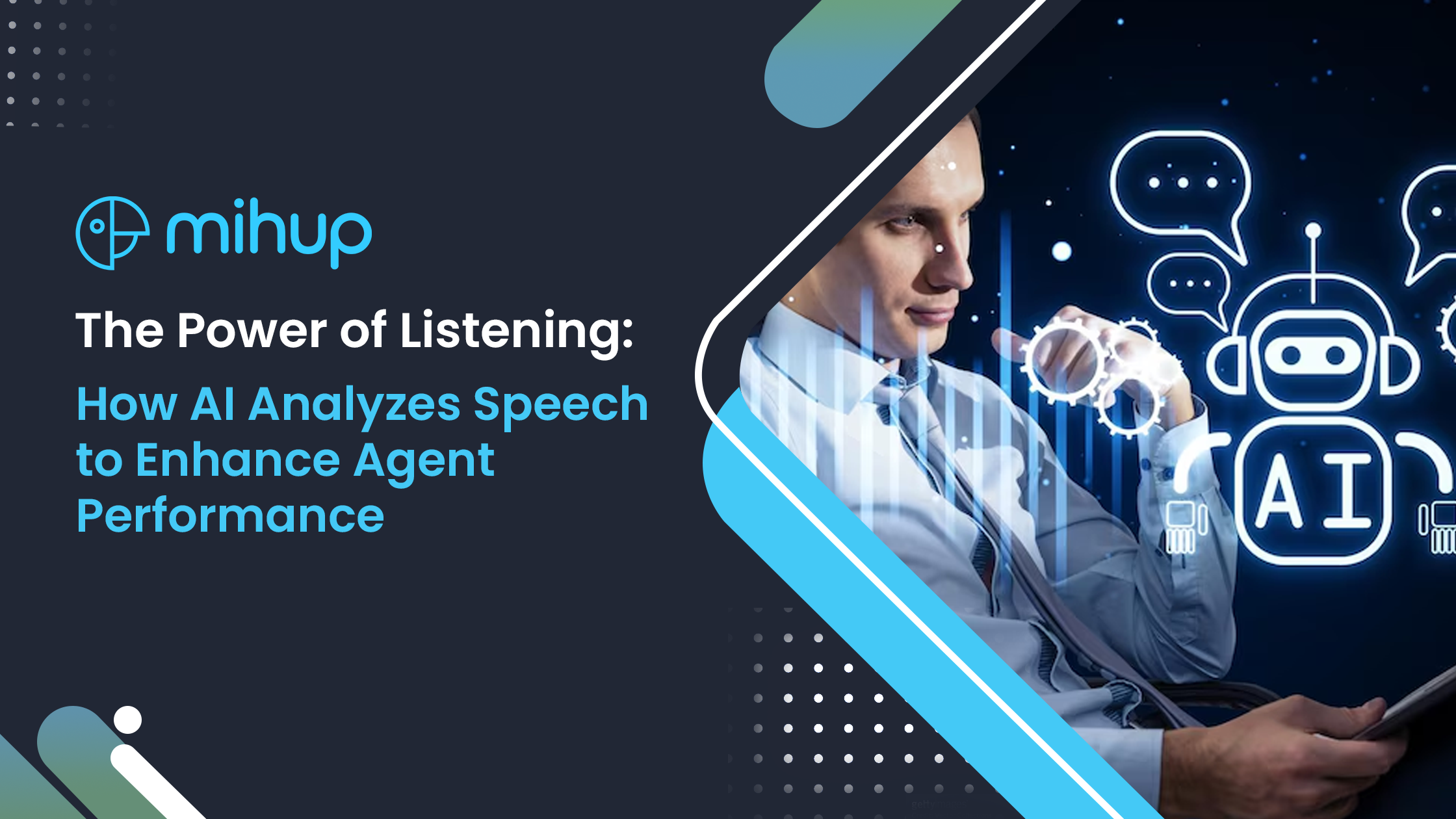The use of AI in analyzing speech has become a significant tool in enhancing agent performance in various industries. AI-powered speech analytics provides valuable insights into customer interactions, enabling businesses to improve customer service.
AI can help call center managers monitor agent performance, track key performance indicators (KPIs), and improve quality assurance by analyzing call center recordings for customer intent and emotions. According to a survey, consumer interest in AI for product walkthroughs is high, with 52% wanting this type of assistance.
AI-powered speech analytics can also help improve customer satisfaction by identifying sentiments and emotions. This allows call center agents to address issues more effectively and provide a better customer experience. Using AI to analyze customer interactions gives businesses access to potentially valuable insights into customer needs and preferences, enabling them to tailor their services accordingly.
How does AI enhance customer support through speech analysis?
AI is a powerful coach for customer service agents, leveraging speech analysis to elevate how to interact and communicate with customers. AI identifies areas where agents and processes can improve by analyzing vast amounts of call data. Real-time feedback during calls helps agents address customer needs more effectively.
AI can also pinpoint communication weaknesses and suggest improvements which can lead to a more empathetic and professional approach. AI also empowers agents to anticipate customer frustration and proactively offer solutions, reducing customer effort. This combination of insights and coaching fosters a customer support environment that’s efficient and personalized and leaves a positive lasting impression.
What are the benefits of using AI for speech analysis in customer support?
The benefits of using AI for speech analysis in customer support vary significantly. These benefits collectively showcase how AI-driven speech analytics can revolutionize customer support operations, improve agent performance, enhance customer satisfaction, and drive business success.
Improved Agent Training:
Improved agent training is a crucial aspect of enhancing the performance of agents in call centers. AI-powered speech analytics can significantly contribute to this process by providing valuable insights into agent-customer interactions, identifying areas for improvement, and enabling targeted training interventions.
AI-powered speech analytics can monitor and evaluate agent-customer interactions, providing call center managers with insights into how agents handle different scenarios, adhere to scripts, and apply best practices.
Enhanced Customer Understanding:
Enhanced customer understanding plays a vital role in how AI analyzes speech to enhance agent performance in call centers. By utilizing speech analytics, AI can provide valuable insights into customer needs, sentiments, preferences, and pain points during interactions. This enhanced understanding allows call center managers to tailor training programs, provide real-time guidance to agents, and improve overall customer satisfaction.
Moreover, real-time monitoring of customer interactions through speech analytics allows for immediate issue resolution. AI can analyze conversations as they happen, providing agents with prompts and guidance based on customer needs and preferences.
Personalized Services:
Speech analytics can identify customer intent, interpret and locate the information and answers they need, and communicate that information to live support agents in real time. This capability enables agents to anticipate customer needs and expectations, leading to greater customer satisfaction. Agents can improve customer satisfaction, loyalty, and overall performance by incorporating personalized services into call center operations.
What are the Key applications of AI listening in business communication?
AI listening in business communication, similar to LMS software for small businesses, can be applied in various ways to enhance communication, improve productivity, and gain valuable insights. Here are some critical applications:
Chatbots and Virtual Assistants:
AI-powered chatbots and virtual assistants can provide customer support, answer queries, and assist in product searches. Using these tools can help improve customer satisfaction and reduce response times.
Chatbots and virtual assistants are not limited to customer service; they can also be utilized for marketing and sales purposes. By collecting and analyzing data on customer behavior, these tools can provide personalized product recommendations and suggestions, increasing the likelihood of a sale.
Natural Language Processing:
Natural Language Processing (NLP) is a key application of AI listening in business communication, enabling computers to understand, process, and generate human language in the same way humans do. NLP is used in various ways to extract valuable insights and business intelligence from text data, optimize business processes, and drive revenue growth.
One major application of NLP in business is demand forecasting, inventory management, and supply chain optimization. A trained AI program running the supply chain can lead to positive results, such as quality merchandise at lower costs and better leeway to create sophisticated products to meet consumers’ demands.
Personalized Recommendations:
AI algorithms can analyze customer browsing and purchasing behavior to provide personalized product recommendations. This would help in enhancing the customer shopping experience and increase sales.
For example, in eCommerce, AI personalization is used to recommend products based on customer preferences, purchase history, and engagement. Brands can analyze data points such as ratings and reviews, purchase history, similar customers, demographic data, or seasonal trends to recommend products that a particular user is likely to buy.
What are the challenges in implementing AI-powered speech analysis in customer support?
Implementing AI speech analysis in customer support has its challenges. Privacy concerns around call recording and potential bias in AI algorithms require careful consideration and clear communication with customers.
Another challenge in implementing AI-powered speech analysis in customer support is the initial investment and technical expertise needed for integration can be significant. It is essential to balance AI automation and the human touch. While AI excels at data analysis, complex emotions, and empathy remain hallmarks of effective customer service.
By acknowledging these challenges and prioritizing solutions like data privacy, bias mitigation, and human-AI collaboration, businesses can harness the power of AI speech analysis to enhance customer support.
How can AI listening help in innovation and discovery?
AI listening acts as a secret weapon for innovation and discovery, ultimately boosting agent performance. Imagine an AI constantly analyzing conversations, like customer support chats. It can unearth hidden needs and trends, pinpointing areas where new solutions are craved.
This empowers agents to stay ahead of the curve. In the context of call centers and customer service, AI listening can be used to analyze customer interactions, identify common pain points, and develop solutions to address those issues.
AI can listen in on agent interactions to identify knowledge gaps and successful strategies. This translates to better training and a constantly improving knowledge base, creating well-equipped and confident agents. AI’s reach extends beyond simply listening. It can analyze vast datasets to spark creative ideas and even suggest solutions in real time, pushing agents to think outside the box.
Finally, AI monitors conversations to provide agents with helpful nudges and identify frustrated customers, enabling them to adapt their approach and deliver exceptional service. By providing these insights and support, AI transforms agents into innovation powerhouses.
Conclusion
The landscape of customer support is undergoing a dramatic transformation. AI-powered speech analysis is emerging as a powerful tool, not to replace human interaction, but to elevate it. By leveraging real-time insights and coaching, AI empowers agents to deliver a more empathetic, efficient, and personalized customer experience.
This robust coordination between humans and AI holds immense potential. Businesses can leverage AI to understand customer needs and tailor services better accordingly. Improved agent training, customer understanding, and personalized service contribute to higher customer satisfaction and loyalty.






